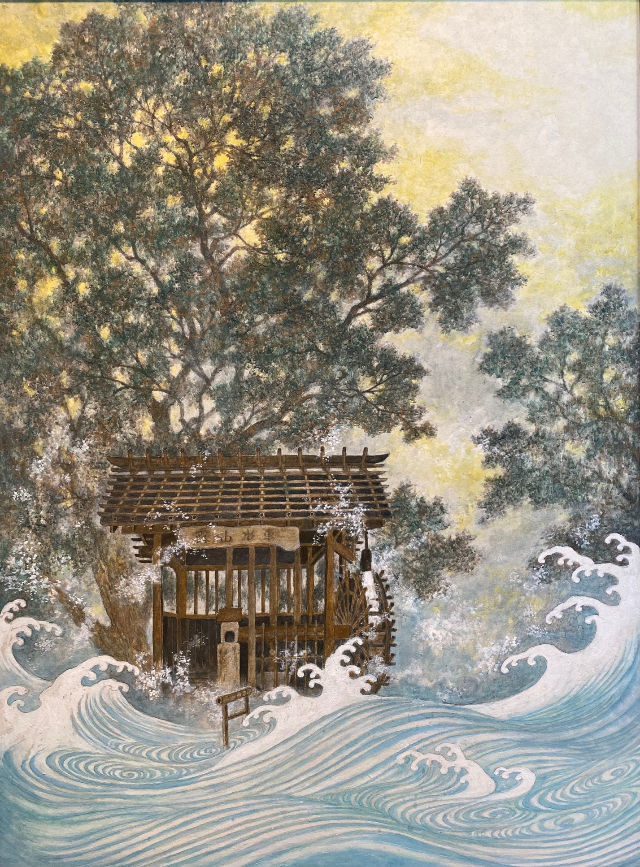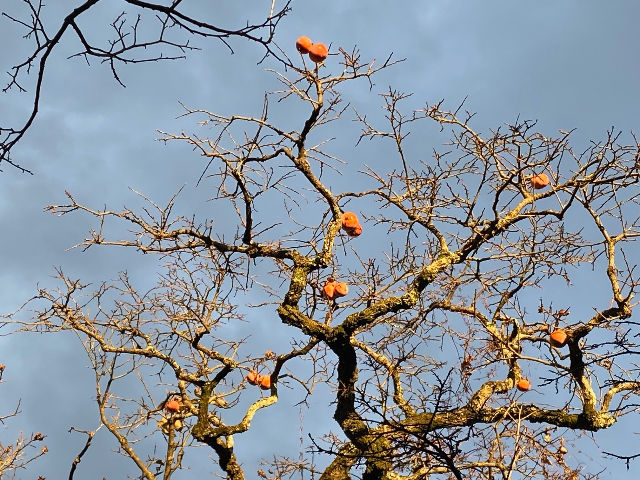THIS TOO SHALL PASS
- Rebecca Otowa
- Sep 20, 2024
- 4 min read
Equinox Sept. 20, 2024

The title of this blog is also my favorite slogan, but recently I’ve taken to adding, “But you must be patient.” Any situation will change, and we usually notice the change as “for the better” or “for the worse”. It’s hard for us, with our short lifespans and awareness of impending death, and the consequent emphasis on speed, to manage change. How can we incorporate inevitable changes into our lives, and what can we learn from them when they have been “passed”?
Recently a friend was left by his partner of eight years. He was devastated, and I don’t think my immediate reaction of “This too shall pass” was particularly helpful, but it may be later, when his feeling has changed, as it inevitably will.
Right now we are in a period of flux, which is the Autumn Equinox for the Northern Hemisphere, when the great wheel of the seasons pauses for just a second to balance day and night during its journey toward winter and the shortest day. We are in flux in other ways too; for example, the US presidential election, which is causing so many people so much angst, is coming up, and also the climate and other environmental markers are changing so that it is hard to know when to do things in life. Especially for gardeners and such people.
In this kind of global situation, the only way to maintain sanity is to learn to ride or surf the waves of change, because they won’t ever stop. It may seem as if sometimes, as now, change is accelerated, but there is never a time when change doesn’t happen at all in this world, because change is a facet of time, which never stops. True, for survival purposes, human beings are biologically opposed to change, which might mean annihilation; we shun it, and pursue the unchanging, which actually amounts to trying to dominate one’s life and minimize or at least control change. In this direction lie self-hatred and constant dissatisfaction, as seen in such problematic phenomena as “anti-aging” and “Make America Great Again”. You can’t prevent things from moving forward, because time moves in only one direction. You can’t put the toothpaste back in the tube.
What would we do if, as we seem to want to, we could stop change from ever happening? What would my friend do if his devastation and sorrow never abated? Is change always awful? Let’s find some changes that are welcome and see what they can teach us.
When seasons change, we can look forward to a time of relief from unrelenting cold or heat, to new colors and new vistas, even clothes and bedding which we haven’t seen for a year so that they seem new. In my house it will soon be time for seasonal house changes (koromo-gae) in which doors are changed from summer (breezy, light) to winter (closed in, cozy). Lots of people who live in old traditional houses don’t have the option of “feeling” warmer or cooler with the psychological effect of seeing these doors – they can’t or don’t make these changes inside their house. But we always do, and will continue to do it (even though it involves moving upward of 30 sliding doors twice a year) as long as we are able. These houses were built before people closed themselves in with air conditioning; when it felt like enough to have an electric fan blowing on you or to open all the windows, to eat transparent jellied sweets or juicy fruits (sweetness is cooling) and sleep on a reed mat instead of a sheet. Summer is getting hotter, that is a fact, and more people are resorting to air conditioning in their home or apartment, which is natural. But one aspect of feeling change in the seasons is lost by this. Seasonal changes, I believe, have the effect of allowing us to accept other changes in our lives more easily.
Let us consider the Equinox once more, as a balance point when day and night are exactly the same length. Like other balance points, this one only lasts a moment. We talk about “getting our lives in balance” – but the longer I live, the more I see that prolonged periods of balance are not in fact possible. Balance points are necessarily very brief; life is actually a series of imbalances which sometimes come into balance.
Imagine you are walking a tightrope. You can’t stay in balance every second, though it might look that way to an outsider. Your feet are in constant motion to preserve the balance, constantly adjusting your body weight in a series of small movements to correct imbalances. Too far this way, too far that way – the central balance point is always in flux. Like perfection, it is unachievable for more than a moment at a time.
The balance point of the Equinox will not last long, it will be gone in the blink of an eye. As smooth as water in a river rushing over stones, that moment will pass seamlessly into the flow of moments. Before we know it, it will be half-past Autumn and on its way to Winter, with its hats, mittens, hot-pots, Christmas cards, whatever you associate with this cold season.
I wish you as seamless as possible a transition to the next season of another year on our planet. Don’t sweat the changes; just lean into them. Once when I was a young mother, I was in line with my 3-year-old son as we waited for a vaccination at the local health clinic. Even though cries of pain could be heard coming from behind the curtain, the grannies around me kept saying to their charges, “It won’t hurt.” My son was getting upset by this disconnect. I said to him, “Yes, it will hurt, but you can manage it if you want to. Would you like to learn how to do it?” Getting his yes, I said that at the moment when the needle goes in, you drop your shoulders and breathe out. Willing yourself to relax at that moment will decrease – not stop – the pain. We practiced this a couple of times, and though the pain was still present, when it was his turn, my son was interested in this method, and thinking about it helped to distract him from an unpleasant experience.
In this way we can learn to manage the changes in our lives. Practice the small and manageable ones first, and then the big changes won’t be so threatening.



I miss my old bamboo lattice fusuma that were a summer feature of my old house in Tottori.